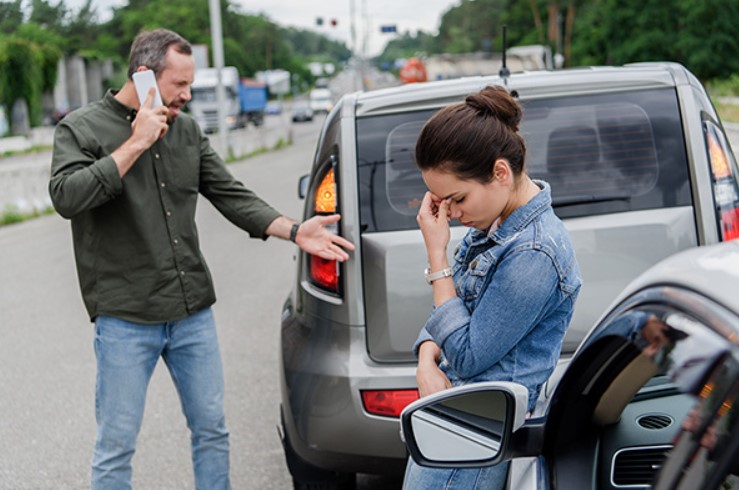
Getting Through the Aftermath: A Step-by-Step Guide to Managing Auto Accidents
Key Takeaways:
- Necessary actions to guarantee safety and adherence to the law after a car accident
- Procedures for medical evaluation, documentation, and managing insurance claims
- The significance of legal guidance in complex accident scenarios, particularly from experts
- Understanding the long-term effects of auto accidents, including emotional and financial repercussions
- Recommendations on safe driving practices and utilizing technology for a safer driving experience
Table of Contents:
- Introduction
- Immediate Actions Post-Accident
- Medical Attention and Documentation
- Understanding Auto Insurance Claims
- Legal Considerations After an Auto Accident
- Dealing with Repairs and Car Rentals
- Long-Term Impacts of an Auto Accident
- Tips for Safe Driving to Avoid Future Accidents
- Useful Technologies and Tools for Motorists
- Conclusion
Introduction
Being involved in an automobile accident is an unnerving experience fraught with anxiety, confusion, and a cascade of ensuing responsibilities. It is a moment where time stands still and rushes forward as decisions must be made quickly yet prudently. While feeling overwhelmed is natural, informing people about the correct procedures can alleviate unease and help them navigate the chaos. In addition to emphasizing the potential assistance of a knowledgeable car accident lawyer Hernando County FL, whose expertise can be beneficial in these circumstances, this guide aims to provide readers with the information needed to approach each step after an auto accident methodically.
Immediate Actions Post-Accident
Following an automobile accident, taking essential steps to ensure safety and establish the foundation for potential legal issues is imperative. Your priority should always be your safety and that of any passengers. If the situation allows, move to a safe area to avoid any additional hazards on the road. Once secure, immediately contact emergency services to report the accident and receive any necessary medical attention. Gathering information is equally vital—take note of the other driver’s details, such as insurance, contact information, and vehicle registration. Collect witness accounts if possible; these can substantiate your version of events later.
Medical Attention and Documentation
After an accident, adrenaline can mask pain, and injuries may not be immediately noticeable. You must seek medical attention as soon as possible for your health and the sake of any future insurance claims. Ensure that all medical records and receipts are preserved; they are crucial evidence of the accident’s impact on your well-being. Proper documentation, including photos of the accident scene and detailed notes, serve as invaluable references as you navigate insurance processes and potential legal proceedings. A well-maintained record of events helps clarify the situation and can make the difference in receiving the compensation you deserve.
Understanding Auto Insurance Claims
Understanding policy jargon and procedures is necessary for the sometimes complex process of filing an insurance claim. When initiating a claim, be thorough and timely in providing your insurer with all pertinent information about the accident. It’s essential to grasp basic insurance concepts, such as deductibles and coverage limits, as they will influence the outcome of your claim. Determining fault is a critical component, as it can affect both the processing of your claim and the potential recovery of damages. Be aware that negotiations with insurers can be lengthy and complicated, underscoring the benefit of having knowledgeable professionals.
Legal Considerations After an Auto Accident
Legal considerations in the wake of an auto accident are multifaceted and can impact the long-term outcome of your situation. In some instances, the expertise of a legal professional might be necessary, particularly in disputes over fault determination or if injuries are severe. An experienced lawyer can clarify your legal standings, such as understanding comparative fault or navigating wrongful death claims if the accident was tragically fatal. They can also guide you through legal formalities, ensuring that you adhere to time constraints such as the statute of limitations. Engaging a reputed car accident lawyer, particularly one knowledgeable about local laws, can be instrumental in advocating for your rights and achieving a favorable resolution.
Dealing with Repairs and Car Rentals
Post-accident vehicle repairs and the necessity for a rental car present additional challenges. It is crucial to deal with credible repair shops and understand your insurance policy’s stance on rental coverage. The process can become convoluted when insurance assessments of damages do not align with repair shop estimates. Disputes may arise, demanding further negotiation or even mediation. Throughout this period, maintaining clear communication with your insurance adjuster and the repair shop is essential to expedite the process and ensure you are fairly compensated for the damages and inconveniences.
Long-Term Impacts of an Auto Accident
The everlasting effects of an auto accident can extend well beyond the initial event. Physically, you may contend with lingering injuries or profound trauma, such as the development of chronic conditions or disabilities. Significant stress on an emotional level can occur, and for some people, this can lead to symptoms that resemble Post-Traumatic Stress Disorder (PTSD), calling for expert mental health assistance. Resources offer insight into coping with these emotional impacts. Financially, the repercussions may include mounting medical bills, lost wages, or diminished earning capacity. These considerations reinforce the need for comprehensive documentation and legal advice to ensure you are adequately compensated for the full extent of your losses.
Tips for Safe Driving to Avoid Future Accidents
While accidents can sometimes be unavoidable, adopting safe driving habits and remaining vigilant can significantly lower the risk of future incidents. Defensive driving techniques like anticipating other drivers’ actions and maintaining a safe following distance are particularly successful. Frequent maintenance inspections of vehicles are also essential for avoiding mechanical issues that can cause collisions. Further, increase your knowledge of typical road hazards and the best ways to navigate them safely. For additional information, consult resources that provide detailed legal steps and precautions after an auto accident.
Useful Technologies and Tools for Motorists
Today’s drivers have access to many technologies designed to enhance road safety. Smartphone applications can provide real-time traffic updates, alert users to dangerous conditions, and offer more accessible access to emergency services. Dashcams serve as impartial witnesses in an accident and offer discounts on insurance premiums. Furthermore, advancements in car safety features, like automatic emergency braking and blind-spot detection, contribute to an overall decrease in accident risks. As new technologies emerge, staying informed and incorporating them into your driving routine can provide additional layers of protection.
Conclusion
Recovering from an auto accident involves more than just physical healing; it entails navigating the legalities, insurance claims, and emotional challenges that often follow such an ordeal. By being prepared and knowledgeable about the appropriate steps, you can better manage the aftermath, secure your entitlements, and focus on recovery. Leveraging the expertise of professionals, from medical providers to legal advocates, can significantly ease this complex journey. Lastly, adopting proactive safety measures and utilizing available resources and technologies can reduce the likelihood of future accidents, fostering a safer driving environment for all.

